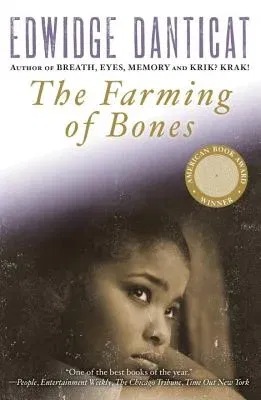Edwidge Danticat
(Author)The Farming of BonesPaperback, 7 May 2013

Qty
1
Turbo
Ships in 2 - 3 days
Only 3 left
Free Delivery
Cash on Delivery
15 Days
Free Returns
Secure Checkout

Print Length
336 pages
Language
English
Publisher
Soho Press
Date Published
7 May 2013
ISBN-10
1616953497
ISBN-13
9781616953492
Description
Product Details
Author:
Book Format:
Paperback
Country of Origin:
US
Date Published:
7 May 2013
Dimensions:
20.83 x
13.97 x
2.54 cm
ISBN-10:
1616953497
ISBN-13:
9781616953492
Language:
English
Location:
New York
Pages:
336
Publisher:
Weight:
317.51 gm